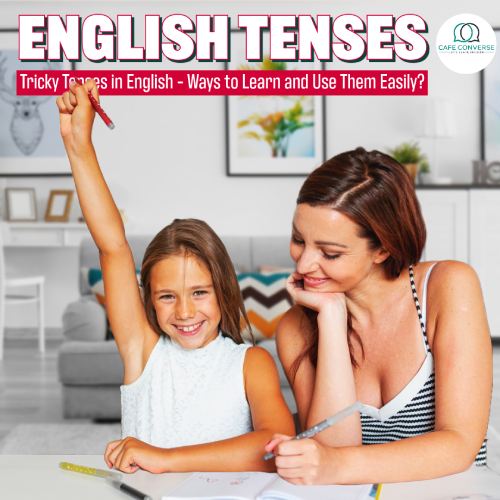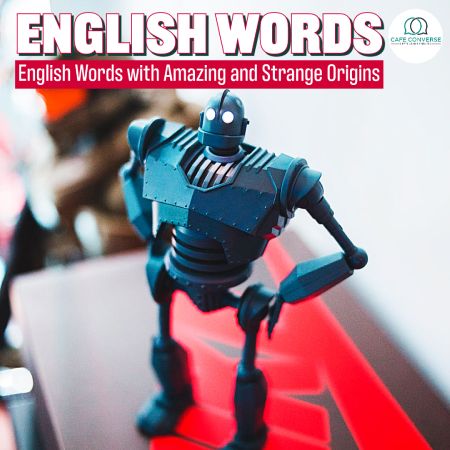Several parents would like to teach their kids English at home, but do not know how to start. It does not matter if your own English is not perfect. The most essential thing is that you are enthusiastic and that you provide your children with lots of encouragement and praise. Your child will pick up on your enthusiasm for learning the language. Do not worry if your child does not start speaking English immediately. They will require a certain amount of time to grasp the language. Be patient, and they will start to speak English in their own time.
Cafe Converse, which offers Delhi’s most sorted online and physical English coaching and tuition classes for kids, shares a few tips on how to improve your child’s English at home.
Create a routine
Set a routine for your English time at home. It is better to have short, frequent sessions compared to long, infrequent ones. Fifteen minutes is good for very young children. You can slowly make sessions longer as your child gets older and their concentration span grows. Keep the activities short and varied in an attempt to hold your child’s attention.
Try to do specific activities at the same time daily. Kids feel more comfortable and confident when they know what to expect. For instance, you could play an English game daily after school, or read an English story with your kids before bedtime. If you have space at home, you can make an English corner where you keep anything liked to English, for instance, books, games, DVDs, or things that your children have made. Repetition is important – children mostly need to hear words and phrases multiple times before they feel ready to produce them themselves.
Playing games
Children learn naturally while they are having fun. Flashcards are a good way to teach and revise vocabulary and there are several different games that you can play using flashcards, like Memory, Kim’s game, Snap, or Happy Families.
You can find free downloadable flashcards on a wide range of topics on the net.
There are many other types of games you can play with your children to help them practice English.
- Action games – for instance Simon says, Charades, What’s the time Mr. Wolf?
- Board games – Snakes and ladders, other traditional games
- Word games – for instance, I spy, Hangman
- Online games – you could finish your English time by having an online game on the net.
Using daily life scenarios
The full advantage of teaching English at home is that you can use daily life situations and real objects from around the house to practice the language naturally and in context. For instance:
- Talk about clothes when your child is getting dressed, or when you are doing laundry (‘Let’s put on your green socks’, ‘It’s Dad’s shirt’, etc.).
- Practise vocabulary for toys and furniture when you are assisting your child to tidy their bedroom (‘Let’s put your teddy bear on the bed!’, ‘Where is the red car?’).
- Teach food vocabulary while you are cooking or going shopping. When you go to the supermarket, hand over your child a list of things to find (use pictures or words depending on their age). Revise the vocabulary while you put the shopping away at home.
Stories
Younger kids love books having bright colors and attractive illustrations. Look at the pictures together and say the words aloud as you point to the pictures. Later you can ask your child to point to various things, for instance, ‘Where’s the dog?’ After a while encourage them to say the words by asking ‘What’s that?’ Listening to stories will get your kid used to the sounds and rhythms of English.
The animated stories are an excellent way for children to develop listening and reading skills. Older children could complete the accompanying downloadable activities to check to understand.
Songs
Songs are quite effective way to learn new words and improve pronunciation. Songs having actions are specifically, good for very young children as they are able to join in even if they are not capable to sing the song. The actions mostly demonstrate the meaning of the words in the song.
There are several fun, animated songs available that you can listen to with your children.
Teaching grammar
With younger children, there is no requirement to explicitly teach grammar rules, but instead get them accustomed to hearing and using various grammatical structures in context, for instance ‘have got’ when you are talking about someone’s appearance, or ‘must/must not when talking about their school rules. Hearing the grammar being used in context from an early age will help your kid to use it naturally and properly when they are older.
For older children, you can use grammar practice books. Videos, quizzes, and games help kids to learn in a fun, relaxed manner
It can be quite useful for older children to teach their siblings or other family members. Explaining ways to use grammar to someone else helps you to master it yourself.
Which words and phrases you should teach first
Consider your child’s interests and personality while deciding which topics to teach, and allow your child to help you to choose. You might like to begin with some of these topics:
- numbers (1–10; 10–20; 20–100)
- colors
- adjectives (for example: big, small, tall, happy, sad, tired)
- the body
- toys
- clothes
- animals (for example pets, farm animals, wild animals)
- food
You can get lots of fun activities on a huge range of topics on the internet too.
It is also essential for your child to get accustomed to the ‘English time’ language, so use the same phrases with your child every time, for instance, ‘It’s English time! Let’s sit down. Which song shall we begin with today?’ Children will soon pick up phrases like please; thank you; Can I have …?; Where is …?; Point to …; What color is it?; It is …; I like …; I don’t like …
Whatever your approach, the most important thin
g is to relax, have fun and make learning English an enjoyable experience for both you and your child.

Ms Sonu Goel is a professionally acclaimed certified ESL trainer from the British Council having 15 years of strong background for teaching the English language in both online and physical classes. She is dedicated to teaching of English in an interactive and practical way, whereby learners feel enriched with knowledge and experience the language hands-on. She uses creative ideas and aids to let the learning happen as organically and efficiently as possible. Ms Goel has travelled to various European countries and experienced an array of cultures and linguistic skills for the English language.
To learn more about Sonu Goel please visit : https://cafeconverse.com/best-english-tutor-coach-teacher-sonu-goel.html



